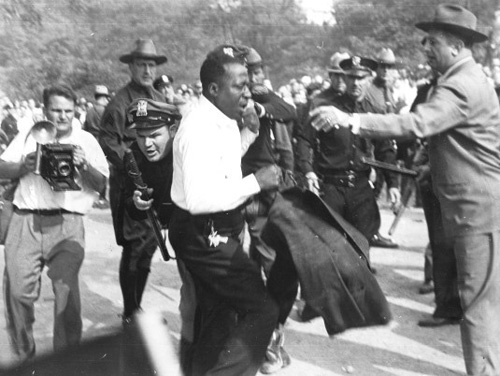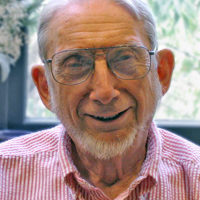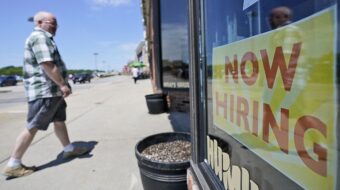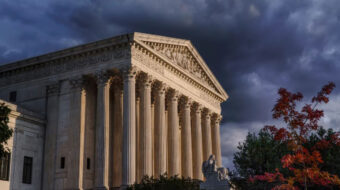
A personal memoir on the 60th anniversary of Peekskill
On August 27, 1949, Paul Robeson was scheduled to sing at a concert sponsored by the music group People’s Artists at the Lakeland Acres Picnic Grounds, a few miles north of Peekskill, New York, about fifty miles north of New York City. This was a favorite summer resort area frequented by progressive intellectuals, especially because of its proximity to Croton-on-Hudson, where many progressive artists and writers lived. The author, Howard Fast, who was vacationing in Croton-on-Hudson, was asked to chair the concert.
At this time Robeson had been under fierce attack from the right because of a speech he had given at an international peace conference in Paris at which he declared that “it is unthinkable that American Negroes will go to war on behalf of those who have oppressed us for generations against a country [Soviet Union] which in one generation has raised our people to the full dignity of mankind.” The Peekskill Evening Star called for a public response to Robeson’s appearance that would guarantee that he did not return to the area. The American Legion joined the call to ensure this.
As the potential audience began to drift into the concert grounds, the Legionnaires attacked the concert grounds and set fire to the wooden chairs and stage. The concert had to be canceled.
The progressive community responded quickly. A new concert was scheduled a week later on September 4 at the same place under the sponsorship of the Civil Rights Congress. Left-wing trade unions organized security for the concert. The plan was to guard the entire hollow by surrounding it with a double ring of some 2000 unionists. The evening before the concert I was called by my union (United Public Workers Local 5) and was told that our group would assemble at 6 am for the bus ride to Peekskill. We were deployed into two concentric rings separated by some fifty or so feet. The security command of some twenty persons was organized by Milt Wolfe, leader of an organization of Spanish Civil War veterans who had fought as members of the Abraham Lincoln Brigade.
As the afternoon approached, the Legionnaires and their supporters paraded on the road outside the hollow with flags and signs generally carrying the words, “Wake up America, Peekskill Did.” Although they harassed those arriving for the concert, the violence was minor compared to what was to come later. Occasionally, a provocateur broke through the fence that surrounded the ground and headed toward us, but the state police would grab them before they reached us.
We heard a report that armed snipers had been spotted in the hills near the hollow. A shield of some ten volunteers surrounded Paul Robeson as he sang. An estimated 25,000 people filled the hollow for the concert.
The main violence began as the concert-goers were leaving the grounds. The sole exit road was lined with the Legionnaires and their supporters, who pummeled the cars and buses with rocks, while the state police stood idly by. My wife, who left by bus, had a tooth broken by a rock thrown through the bus window. Several hundred people were hurt in this fashion. Details of the entire Peekskill episode can be found in the book Peekskill written by Howard Fast, who had served as the chair for the aborted Peekskill concert.
Fast’s account, however, omits what happened to the last five hundred guards to leave the grounds and the members of the command post. After the concert-goers had left, the guards began their exit. When we were down to about five hundred, the state police took the bus drivers off somewhere, and formed themselves into two long lines, forcing us to run the gauntlet between them several times, clubbing us as we ran. Although many of us were hurt badly, I managed to escape without significant bruises. It seems that I had acquired skill in running the gauntlet way back in my Cub Scout days, when the kids with too many demerits were punished by being belted as they ran a gauntlet formed by the other kids.
I later learned from my dentist that Milt Wolf, who used the same dentist, lost several teeth from the beatings to which the members of the command post were subjected about the same time that we were running the gauntlet. The members of the command post had been taken off to where we could not see them and beaten mercilessly by the state police.
The state police then returned the drivers to their buses, which we were then allowed to board. We were not yet free, however. The drivers were made to follow the instructions of the state policemen that had been assigned to all the buses. To terrorize us, they whispered directions to the drivers and would give us no information about where we were going. After a long drive to nowhere, the buses turned around and continued the long drive to nowhere in another direction. At about midnight, we were brought to a left-wing resort near Peekskill and ordered off the buses. The buses then drove off with only the state policemen as passengers.
A call went out for cars to bring us back to New York City. By 2 a.m., I was on my way home. Recently, Communist Party Vice Chair Jarvis Tyner told me how Paul Robeson and Communist New York City Councilman Ben Davis escaped unscathed thanks to Irving Potash, a Communist who was in the leadership of the Furriers Union. Potash had responsibility for the overall security arrangements. Instead of their car taking the road south to New York City, they took the road north and stayed overnight in a Westchester County home. In the morning they returned to New York by train.
Needless to say, the commission appointed by Governor Thomas Dewey to investigate the “disturbance” that had occurred at Peekskill pinned the blame on those who had attended the concert.
Erwin Marquit is professor emeritus of physics at the University of Minnesota and publishes the Marxist journal Nature, Society, and Thought.












Comments